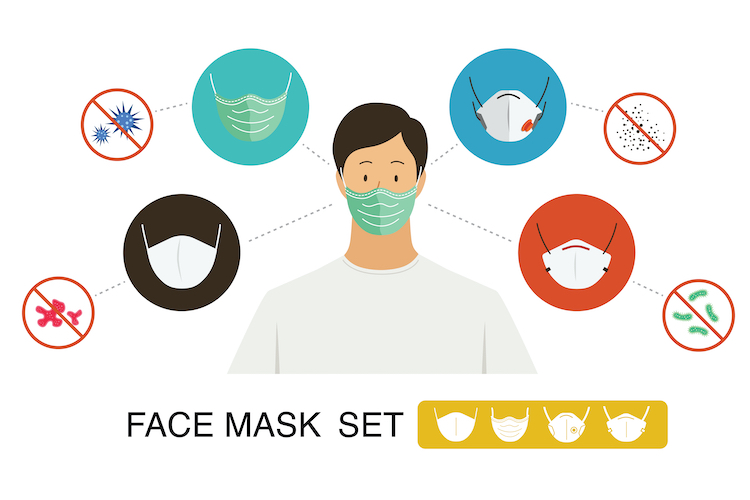
With increasing Air Pollution levels and the spread of COVID-19 Coronavirus, people are panic buying face masks. However, most people don’t know the mask they are buying and whether those masks will be effective or not. So, in this article, we will compare the most popular face mask types and let you know their features and shortcomings. We will also discuss if these masks can help you during the COVID-19 pandemic. So, here are the different masks-type available in the market and their features.
What Air Pollution Face Masks You Should Buy
Before we begin, let us first discuss what we mean by air pollution masks and how they work.
What are Face Masks and How They Work?
Face Masks as the name suggests are masks that cover your nose and mouth. The masks filter out pollutants when you breathe through them. Thus, ensuring that you are breathing clean and purified air. Most air pollution masks are made of different layers. Each layer is designed for stopping a different pollutant. The three main filters are:
- Primary filter – It’s the outer-layer. Its work is to stop all the large particles such as dust and pollen. While it can stop PM10 particulate matter, it cannot remove PM2.5.
- Particle filter – The second layer is the particle filter. It’s there to stop the smaller pollutants such as PM2.5.
- Carbon filter – Some high-end pollution masks also contain an activated carbon filter that filters out the gaseous pollutants that cannot be trapped by either primary or particle filter.
“PM10 and PM2.5 refer to particulate matters that are 10 micrometers and 2.5 micrometers in size. Since these particulates are so small, they stay in the air for a long time and can easily pass through our nasal cavity and accumulate in our lungs causing breathing problems, asthma, and even prolonged heart and lung diseases.”
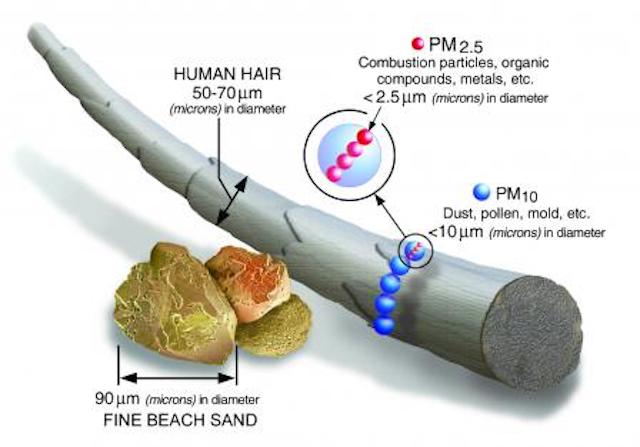
So, depending on the filter layers in your face-mask, your protection level will be different. Also, when at home, air purifiers are far better option than face masks. Now, that you know how air pollution masks work, let’s get to our mask types.
Types of Air Pollution Face Masks
-
Surgery Masks (Face Masks)
Surgery masks are simple face masks most people use (see picture below). Surgery masks are often made in different thicknesses and are designed only to protect you against contact and liquid. They are there to provide a barrier between your mouth and nose and environment. A good quality surgery mask if worn properly can help block droplets, splashes, and splatter that may contain germs.
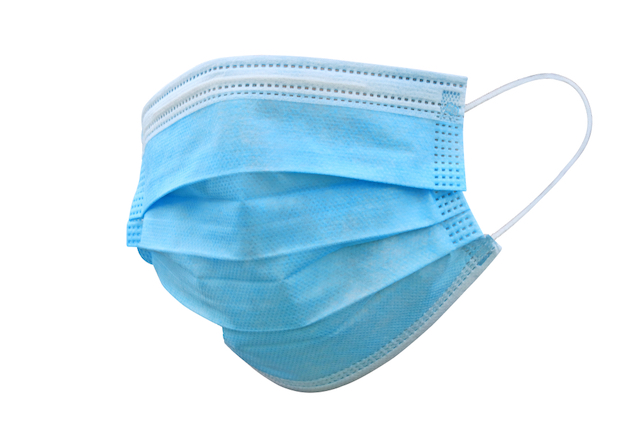
But that’s all it can do. It cannot stop smaller particles resulting from sneezes or air pollutants like PM particles and gaseous air pollutants. So, it makes no sense to wear these masks. They only bring a false sense of protection. It’s even more true for the over-the-counter masks we buy as they are not put through any standard checks.
-
N95 Air Masks
N95 air masks are the basic air pollution masks that everyone should wear for protection against air pollution. It can filter 95% of all air pollutants including some part of PM2.5 pollutants. But this cannot protect you against oil-based pollutants. A good thing about these masks is that you can wash them and use them for six months before you need to replace them. N95 masks are available in several designs. When shopping for this mask, choose one with a separate air valve for exhaled air. This will prevent the building of moisture and fogging of spectacles.
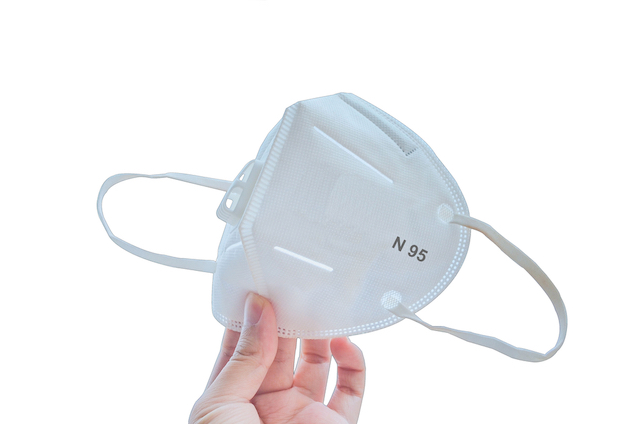
-
N99 and N100 masks
These are premium masks and can filter particles like PM2.5 with 99% and 99.97% efficiency. They are great for people living in highly polluted cities like New Delhi. If you cannot find these masks, buy at least the N95 mask. Also, like N95, these masks are not good against oil-based pollutants, so keep that in mind.
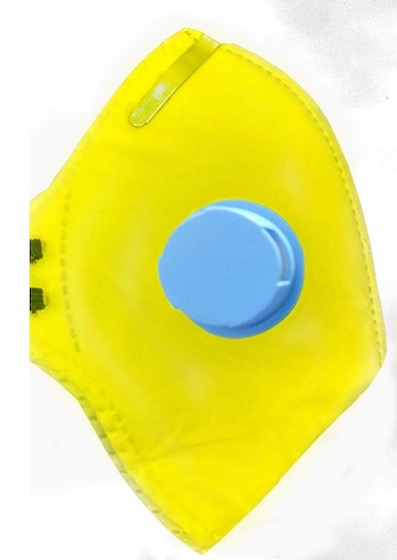
-
P95 Masks
If you want total protection, you should buy the P95 masks. The major difference between the P-series and N-series masks is that the former can stop the oil-based pollutants while the latter cannot. However, this also means that P95 masks are costly, not readily available, and require replacement after just 40 hours of use. That’s why these masks are meant for industrial usage and are not recommended for everyday use.
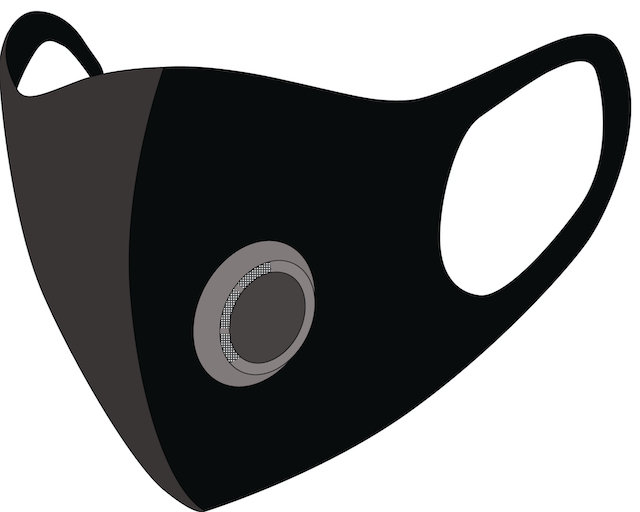
-
R95 Masks
The R-series of masks are somewhere between the N-series and P-series. Unlike N-series masks, they are oil resistant but they are not oil proof like the P-series. So R95 can stop 95% of particulate matter and some oil-based pollutants.
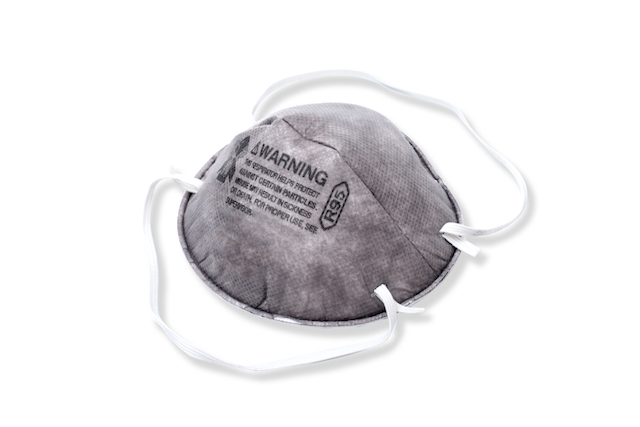
These are the main masks types. If you look at the masks’ name, you might have realized that the numbers and letters stand for specific properties. In the table below, I have concisely explained everything.
| Type | Meaning |
|---|---|
| N | Not Oil Resistant (Only stops Airborne Particulate) |
| R | Oil Resistant (Stops Airborne Particulate as well as oil-based pollutants to some extent) |
| P | Oil Proof (Stops Airborne Particulate as well as oil-based pollutants ) |
| 95 | Stops 95% of Airborne Particles |
| 99 | Stops 99% of Airborne Particles |
| 100 | Stops 99.99% of Airborne Particles |
So, those are the mask types that you can buy for protecting yourself against air pollution. If you don’t remember the different mask types, just remember the table, and it will help you figure out the mask you are buying.
Can The Face Masks Protect You Against COVID-19
One of the biggest questions that I have seen people ask is whether these masks can protect a person against COVID-19. Well, the short answer is no. As I have mentioned above, the surgery masks cannot stop smaller droplets that people release during sneezing, and hence, you can still inhale and contract COVID-19 while wearing the mask.
But what about air pollution masks? Well, the thing is that COVID-19 is not only spreading person-to-person but also surface-to-person. So, even if your mask can stop the virus when inhaling (and that’s a big if), the virus will remain stuck to your mask. And when you touch the mask, it will transfer to your hands, and from your hands to your face when you touch it.
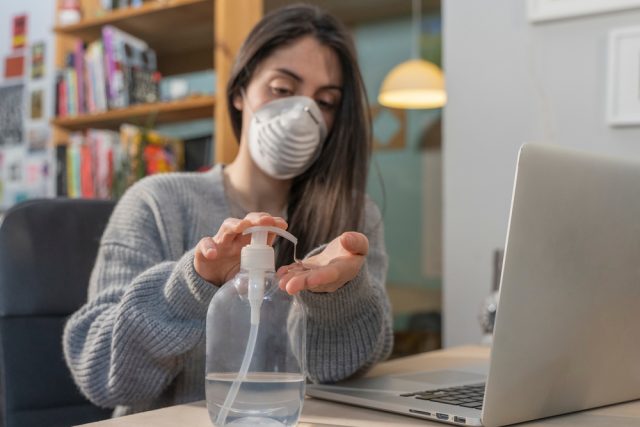
So, to be extra careful, use sanitizer or wash hands whenever you touch your mask. That’s why it’s still a better option to isolate yourself if you want to protect yourself. Masks can help you stop spreading COVID-19 to other people if you have already contracted the virus. But again, the best option is to self-quarantine yourself and seek professional medical help.
Choose the Best Air Pollution Mask for You
I hope this article, helped you in finding out the best air pollution face mask you can buy for yourself. Remember, only masks cannot protect you against COVID-19. You will have to take all the other precautions too. The best way is to self-isolate and wash hands. If you still have any confusion, ask your questions in the comments below, and I will answer them.










